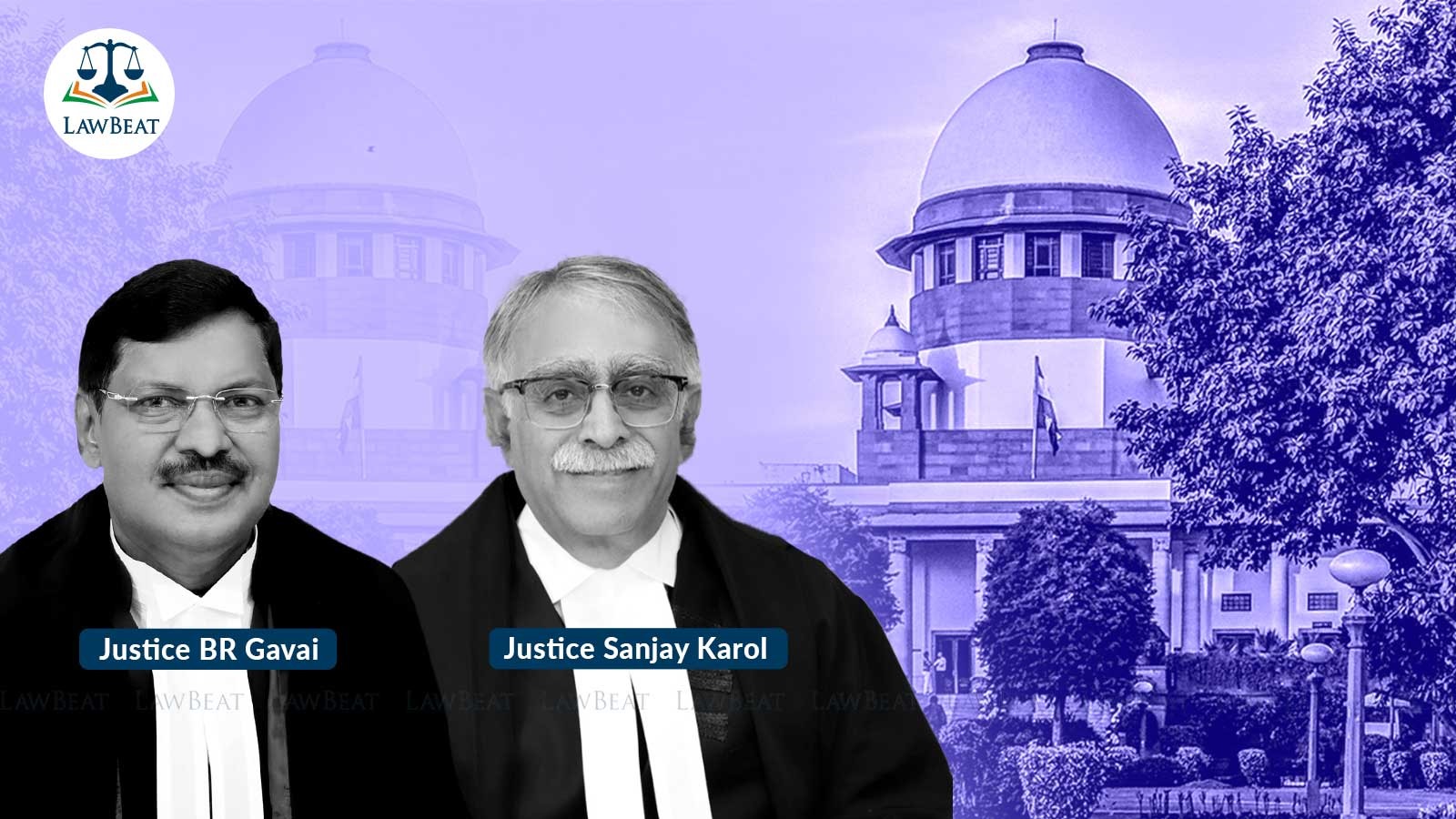No difference between party to suit acting as witness and witness simpliciter: Supreme Court

The SC bench court said that the provisions of the Civil Procedure Code as also the Indian Evidence Act do not differentiate between a party to the suit acting as a witness and a witness otherwise called by such a party to testify
The Supreme Court has held that there is no difference between a party to a suit acting as a witness and a witness simpliciter and the production of documents for both, a party to the suit and a witness as the case may be, at the stage of cross-examination, is permissible within law.
A bench of Justices B R Gavai and Sanjay Karol negated a proposition that the law differentiates between a party to a suit and a witness for the purposes of evidence.
The court said that the provisions of the Civil Procedure Code as also the Indian Evidence Act do not differentiate between a party to the suit acting as a witness and a witness otherwise called by such a party to testify.
"Witnesses and parties to a suit, for the purposes of adducing evidence, either documentary or oral are on the same footing," the bench said.
It found the lack of differentiation between a party to suit acting as a witness and a witness simpliciter in the suit proceedings. "If the legislature had the intent to differentiate between a party to a suit as a witness, and a witness simpliciter, it would have done so, explicitly," the court pointed out.
Holding that every trial is a search of truth, the bench said, "In our considered view, this distinction does not rest on firm ground. This is so because the function performed by either a witness or a party to a suit when in the witness box is the same. The phrase “so far as it is applicable" in Order XVI Rule 21 does not suggest a difference in the function performed".
Referring to the Indian Evidence Act, the bench said the thrust of the reliance was that this Act by the use of the phrase ‘by the parties who calls him' in the extracted provision, recognises the difference between a party to a suit and a witness called on to testify by a party.
"This distinction again, on the face of it, appears misconceived," it said.
The top court set aside a Bombay High Court's division bench judgment, which had held that differences between a party to a suit and a witness have been identified, as the Civil Procedure Code uses the expressions ‘party’ and ‘witnesses’ "in contradistinction to each other." Further, the HC had observed that the role of a witness is separate and distinct to a party to a suit. It had also observed that merely because Order XVI Rule 21 states that the Rules relating to witnesses would also apply to parties summoned does not equate the two.
The HC had also held the production of documents at this stage of cross-examination was impermissible as that would amount to a surprise which is impermissible under the provisions of the Code.
The bench, however, said if the holding of the High Court is given an imprimatur, it would cause an apparent conflict between provisions of the very same Act, which stated that, a party to a suit shall be, amongst others, a competent witness.
"It may also be observed that nowhere in the Evidence Act has the party been precluded from presenting himself as a witness, and therefore this differentiation based only on the meaning as it appears, cannot be countenanced," the bench said.
"A perusal of Sections 137,138 and 139, in our considered view, does not favour the differences as pointed out in the impugned judgement. Examination in chief, cross-examination and re-examination are all facets of a trial which can be availed by a party or the adversary, for both the party to a suit as a witness and also for other witnesses called by the party. Therefore, this negates the interpretation that “the party who calls him” suggests a difference between the party as also the witness called by such party for the purposes of entering evidence before the court," the bench added.
The court rejected the argument that the literal interpretation of "the Plaintiff's witnesses" and "the Defendant's witnesses" suggested a clear difference between the parties to the suit and the witness produced at their instance.
The bench said this has to be necessarily negated as a plaintiff or a defendant at their own behest may enter evidence in court- and so, to hold, as the judgement impugned before us does, that it is permissible as according to Order VIII Rule 1-A(3), to produce a document to confront or jog the memory of a witness, but the same would not be permissible as applied to a party to a suit, would create an artificial distinction, which otherwise does not serve any purpose of law.
"The differentiation between the party to a suit and a witness...is not something that gels with the law," the bench said.
The term witness does not exclude the party to the suit i.e., the Plaintiff or the Defendant, themselves appearing before the court to enter evidence.
"As far as the non-production of documents amounting to fraud, it may be true that the non-production of documents on which the parties place reliance, may hinder the progression of the suit- and in a given case, perhaps may amount to fraud- but we do not comment on those possibilities, if any," the bench said.
